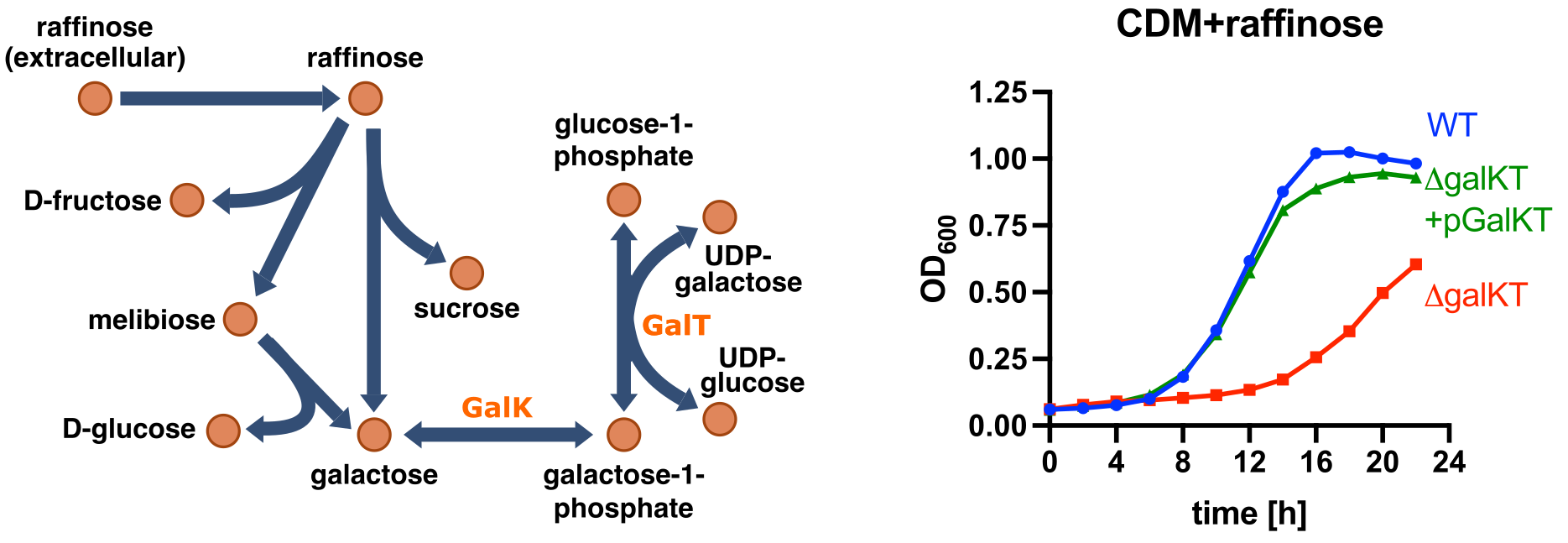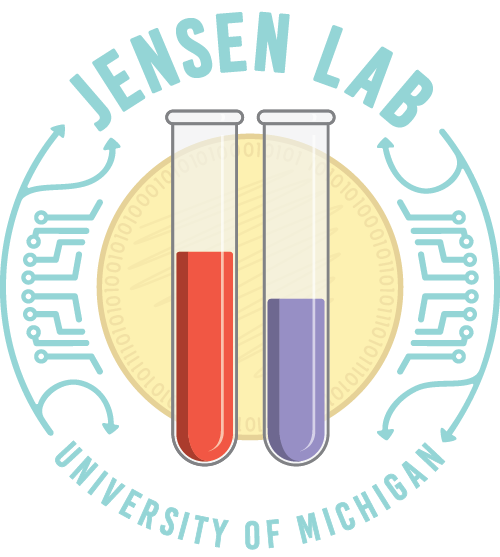Research
The Jensen Lab solves biological problems that are too large for either experiments or computation alone. Such problems have a combinatorial structure that we tackle with automation, artificial intelligence, and functional genomics.Automated Science. Our Deep Phenotyping platform performs thousands of
experiments each day to map the metabolic and regulatory networks in bacteria.
The robotic system is driven by BacterAI, a reinforcement learning agent that
designs experiments and learns from the results. Information about the robots
behind Deep Phenotyping can be found here.

Combinatorial Stress Responses. Bacteria mount a physiologic stress response
to survive hostile or stringent conditions. These stress responses shape the
microbial communities that live in, on, and around us. Despite the importance
of stress responses, we know little about how microbes tolerate complex combinations
of stressors. Our lab studies three questions regarding microbial stress responses.
1.) How do bacteria response to multiple stressors? 2.) How does stress reshape
the composition and stability of microbial communities? 3.) How quickly can we
learn the stress responses of newly discovered bacteria? We answer these questions
using high-throughput experiments and machine learning.

Oral Microbiology. Imbalances in the oral microbiome cause numerous diseases,
including tooth decay. We study the metabolism and communication systems of the
oral streptococci, especially the human pathogens Streptococcus mutans and
Streptococcus sobrinus.

Funding. The Jensen Lab is grateful for support from the following groups:
 |
 |
 |
 |
 |
 |
